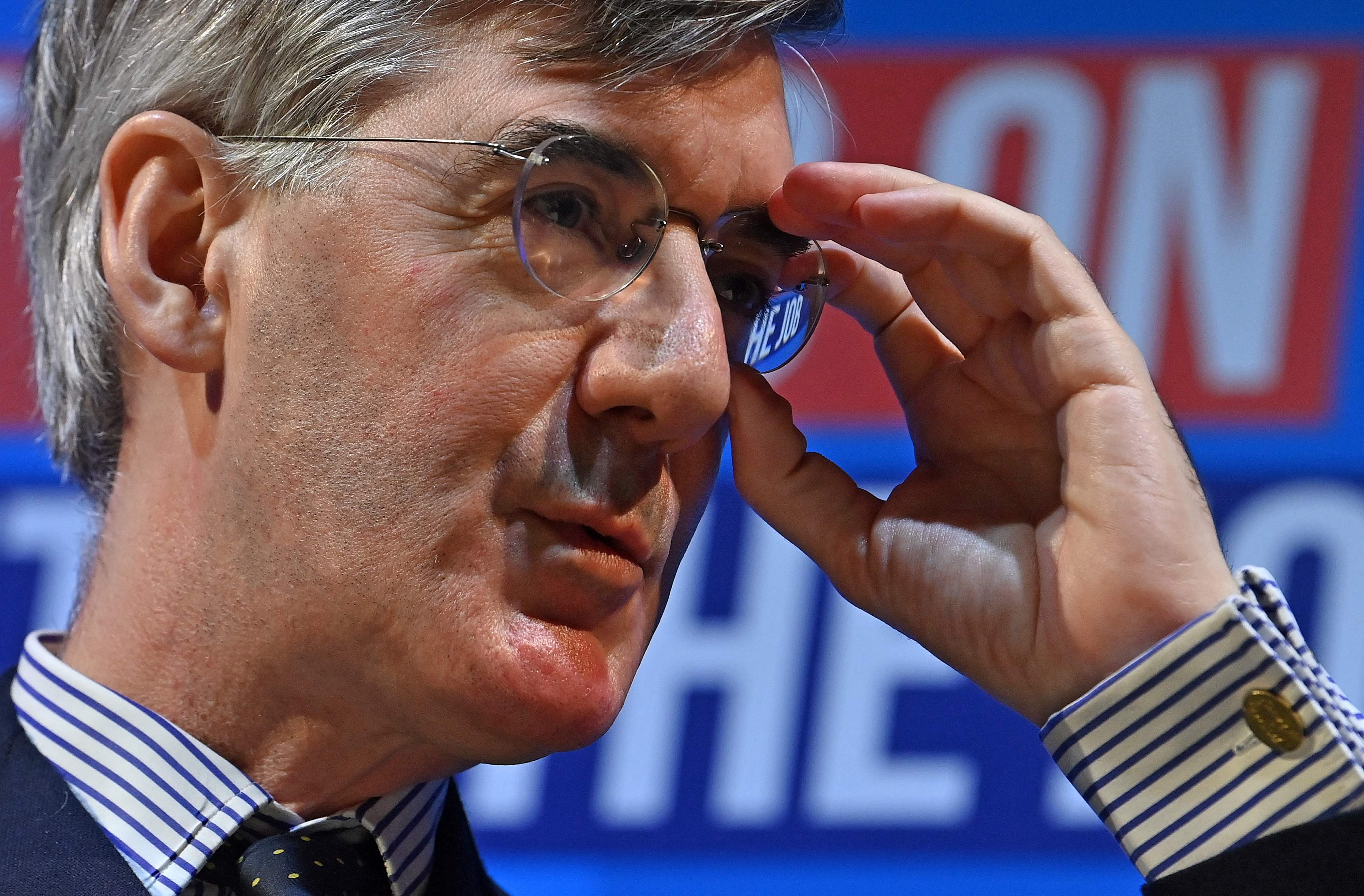Jeremy Hunt refuses to commit to tax cuts before 2024 election
Jacob Rees-Mogg, Priti Patel and others on low-tax right speak out against Budget moves
Your support helps us to tell the story
From reproductive rights to climate change to Big Tech, The Independent is on the ground when the story is developing. Whether it's investigating the financials of Elon Musk's pro-Trump PAC or producing our latest documentary, 'The A Word', which shines a light on the American women fighting for reproductive rights, we know how important it is to parse out the facts from the messaging.
At such a critical moment in US history, we need reporters on the ground. Your donation allows us to keep sending journalists to speak to both sides of the story.
The Independent is trusted by Americans across the entire political spectrum. And unlike many other quality news outlets, we choose not to lock Americans out of our reporting and analysis with paywalls. We believe quality journalism should be available to everyone, paid for by those who can afford it.
Your support makes all the difference.Chancellor Jeremy Hunt refused to commit to tax cuts before the 2024 general election –putting him on a collision course with Conservative MPs on the right.
Mr Hunt refused to bow to backbench Tory pressure to cut taxes, hiking corporation tax from 19 to 25 per cent and freezing personal thresholds in cash terms rather than increasing them with inflation.
It means workers will pay an extra £29.3bn a year in five years’ time as millions more are dragged into paying tax or higher rate taxes for the first time.
Several senior Tories spokes out against changes announced at Wednesday’s Budget – with Jacob Rees-Mogg decrying the government’s “not good” approach to tax policy.
Asked by ITV’s Peston whether he would cut taxes before the election expected in 2024, Mr Hunt refused to offer any glimmer of hope for Tory tax rebels.
“My job is to do the right thing for the economy and then people will see that they can trust the Conservatives to get the economy growing. That’s the electoral dividend – I’m not interested in playing games.”
Tory MPs urged him to cut taxes in the autumn budget later this year, rather than wait until too close to the general election. Some are understood to be worried waiting until 2024 will look too much like an election bribe.
Former Tory minister David Jones told The Independent: “I’d like to see corporation tax reduced as soon as possible. The Conservatives must be the party of low tax.”
Former home secretary Priti Patel pleaded with Mr Hunt to keep the corporation tax rise “under review”, having argued the “hammer” businesses and see the “flight of capital” out of Britain.
Liz Truss loyalist Simon Clarke – a senior figure in the Conservative Growth Group advocating tax cuts – responded to the Budget by saying “we urgently need to have a more Conservative position on tax.”
Ranil Jayawardena said it would “stifle job creation”, while fellow low-tax advocate John Redwood said Mr Hunt needed to understand that “at exactly the time it’s putting the rate up, our competitors are going the other way.”
Ex-cabinet minister Andrea Leadsom told Times Radio: “As soon as we possibly can we’ve got to link those tax thresholds to inflation.”
Britain’s overall tax burden is predicted to rise to levels not seen since the World War II, the Office for Budget Responsibility (OBR) said. The body also pointed to the “highest ratio of corporation tax receipts to GDP since the tax was introduced in 1965”.
The Resolution Foundation think tank said the UK is on course for a “disastrous decade” of both stagnant incomes and high taxes.
The think tank warned that taxes as a share of GDP are on track to hit a 70-year high of 37.7 per cent by 2027-28 – equivalent to nearly an extra £4,200 tax for every household in the UK.

The chancellor announced two new capital allowance schemes aimed at encouraging investment to invest in IT equipment, machinery, and research and development.
But Mr Rees-Mogg said “salami-slicing” the corporation tax rise with the capital allowance schemes was “not a good approach to tax policy.”
The former Brexit opportunities minister told Times Radio he was “certainly worried” about the freezing of thresholds on income tax, adding: “High taxes are always damaging for political parties.”
But Tory Treasury secretary John Glen defended the changes. “I’m aware of Jacob’s views – the reality is, we still have the lowest corporation tax rate in the G7,” he told GB News.
The Budget was welcomed by other Tory MPs, who praised Mr Hunt’s £5bn package to expand free childcare, as well as moves to freeze fuel duty, extend the energy price guarantee and reform benefits to encourage more people back into work.
Tory MP Daniel Kawczynski said: “He’s just won us the next election by a narrow majority.”
However, Tory MP Miriam Cates said Mr Hunt’s childcare support package “is not the right policy” for women or children. “It doesn’t provide choice. Many mothers want to go back to work – but many mothers don’t.”
One Tory MP at the 1922 Committee meeting with Mr Hunt last night called the Budget a “triumph”.
Another said it was “a good day for the party”. The MP told reporters there were “clearly other ideas in the fire for the next Budget”.





Join our commenting forum
Join thought-provoking conversations, follow other Independent readers and see their replies
Comments